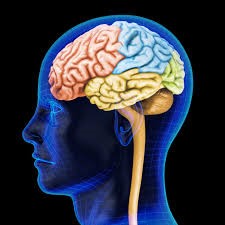Compensatory Cognitive Training Research Program (CCTRP)
Maya O’Neil, Ph.D. – Principal Investigator
Multiple factors can contribute to cognitive decline (e.g., traumatic brain injuries, blast and other military-related exposures, addictions, mild cognitive impairment, aging). This program aims to address the growing need for cognitive rehabilitation interventions and looks to understand the efficacy of treatments, particularly Compensatory Cognitive Training (CCT), on various conditions which have been associated with cognitive decline.

Compensatory Cognitive Training (CCT) is a brief, inexpensive, patient-centered, holistic/comprehensive, multi-modal, behavioral intervention developed by Drs. Beth Twamley, Marilyn Huckans, and colleagues. Additional information about CCT and related interventions developed by Dr. Twamley are available at www.cogsmart.com and www.smartlab.ucsd.edu. CCT includes cognitive training, psychotherapeutic techniques, and lifestyle techniques and teaches individuals skills to address attention, memory and executive function problems. CCT also incorporates day planner/calendar training, brief mindfulness-based stress reduction exercises to improve cognition and general health, and brief motivational interviewing techniques to increase healthy lifestyle behaviors (e.g., physical exercise, mental exercise, and nutrition) associated with improved cognition.
Sessions provide psychoeducation on the targeted concern (e.g., addiction, TBI, PTSD) and evaluate the risk and protective factors associated with cognitive decline. Compensatory cognitive skills training emphasizes teaching individuals internal, external, and environmental strategies for improving memory, attention, and executive functioning.
Prior research with CCT was conducted with Operation Enduring Freedom (OEF) and Operation Iraqi Freedom (OIF) Veterans with mild traumatic brain injury (mTBI). This study indicated that CCT was associated with significant improvements in objective cognitive performance, subjective cognitive complaints, and subjective everyday functioning. CCT was found to be effective for Veterans regardless of the presence of mental health comorbidities including PTSD, depression, or substance use.
Current research

Cognitive Rehabilitation for Older Adults with Mild Cognitive Impairment: Drs. O'Neil and Twamley recently completed research with Veterans, aged 55 and older, who were experiencing symptoms of mild cognitive impairment (MCI). Individuals with MCI symptoms may experience issues with memory, attention, executive functions, and everyday functioning. This study was conducted at the Portland and San Diego VAs.

Compensatory Cognitive Training for PTSD: Dr. O’Neil recently conducted a pilot study of Veterans who have PTSD but who do not have a history of traumatic brain injury. This randomized controlled trial of CCT for PTSD addressed cognitive complaints (e.g., difficulty concentrating or paying attention, memory, multitasking, decision-making, and other aspects of cognitive functioning) often associated with PTSD and was conducted at the Portland VA.
Depression and Addictions Pilot Research: The CCTRP is also collecting pilot data on CCT for depression and for addictions on conjunction with dissertation research of OHSU Clinical Psychology students Joren Adams and Kate Shirley.
Compensatory Cognitive Training and Morning Bright Light Therapy for mild TBI and PTSD: Drs. Twamley and O’Neil, along with colleagues Drs. Kate Clauss, Jon Elliott, Miranda Lim, and Amy Jak, were recently funded by the VA to investigate ways to improve cognitive rehabilitation outcomes for Veterans with mild TBI and PTSD. This randomized controlled trial will be conducted starting in 2026 at the San Diego and Portland VAs and will examine will examine augmenting CCT with treatments to improve mood and sleep symptoms common to PTSD and mild TBI.